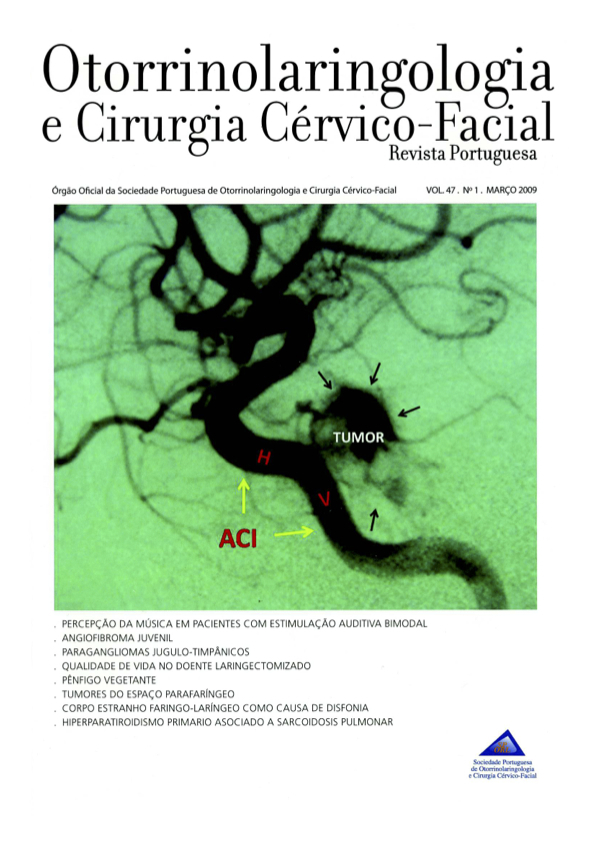Juvenile angiofibroma: sixteen years experience
DOI:
https://doi.org/10.34631/sporl.33Keywords:
juvenile angiofibroma, embolization, persistence, recurrenceAbstract
Objective: To analyze the activity of the IPOLFG-EPE service of ENT related to angiofibroma; to determine if embolization is a factor which interferes with tumor persistence/ recurrence.
Patients and methods: Retrospective study of 28 patients submitted to surgery for juvenile angiofibroma in the years 1990 to 2007. Statistical analysis was made with Spearman study Results: Five patients had tumour in stage IA, one patient in stage IB, one in stage IIA, 3 in stage 118, 7 in stage IIIA, 2 in stage BIB and four had no defined stage. Embolization was performed in 51.7% patients, After initial treatment, there was 25.9% of persistence and 11.1% of recurrence. After a second surgery, there was 18.5% of persistence/recurrence. Correlation between embolization and persistence was not statistical significant (p = 0.086).
Conclusion: Juvenile angiofibroma is diagnosed in late stages. In this study, embolization has no influence in tumour persistence.






